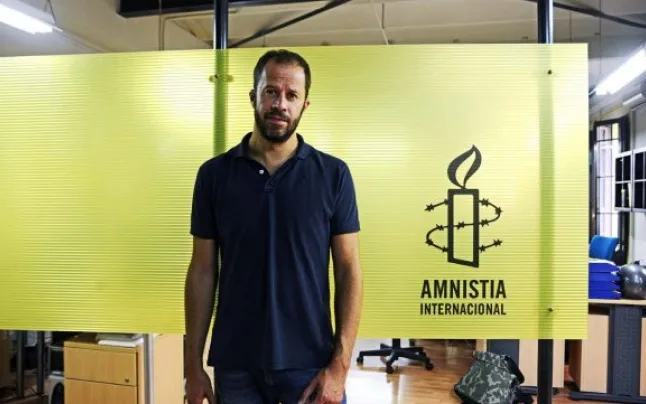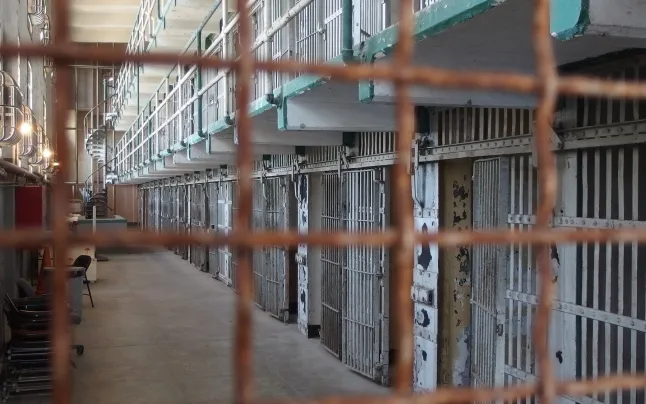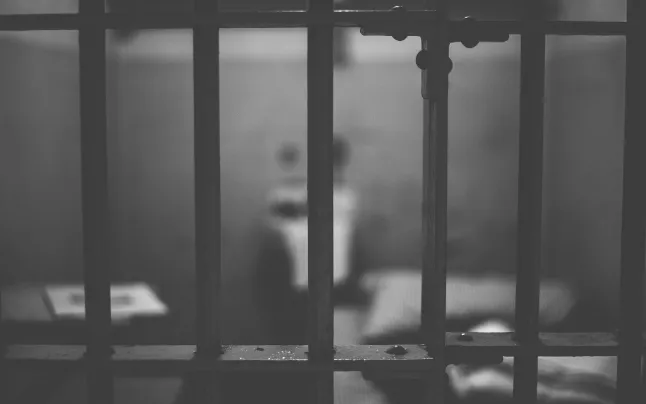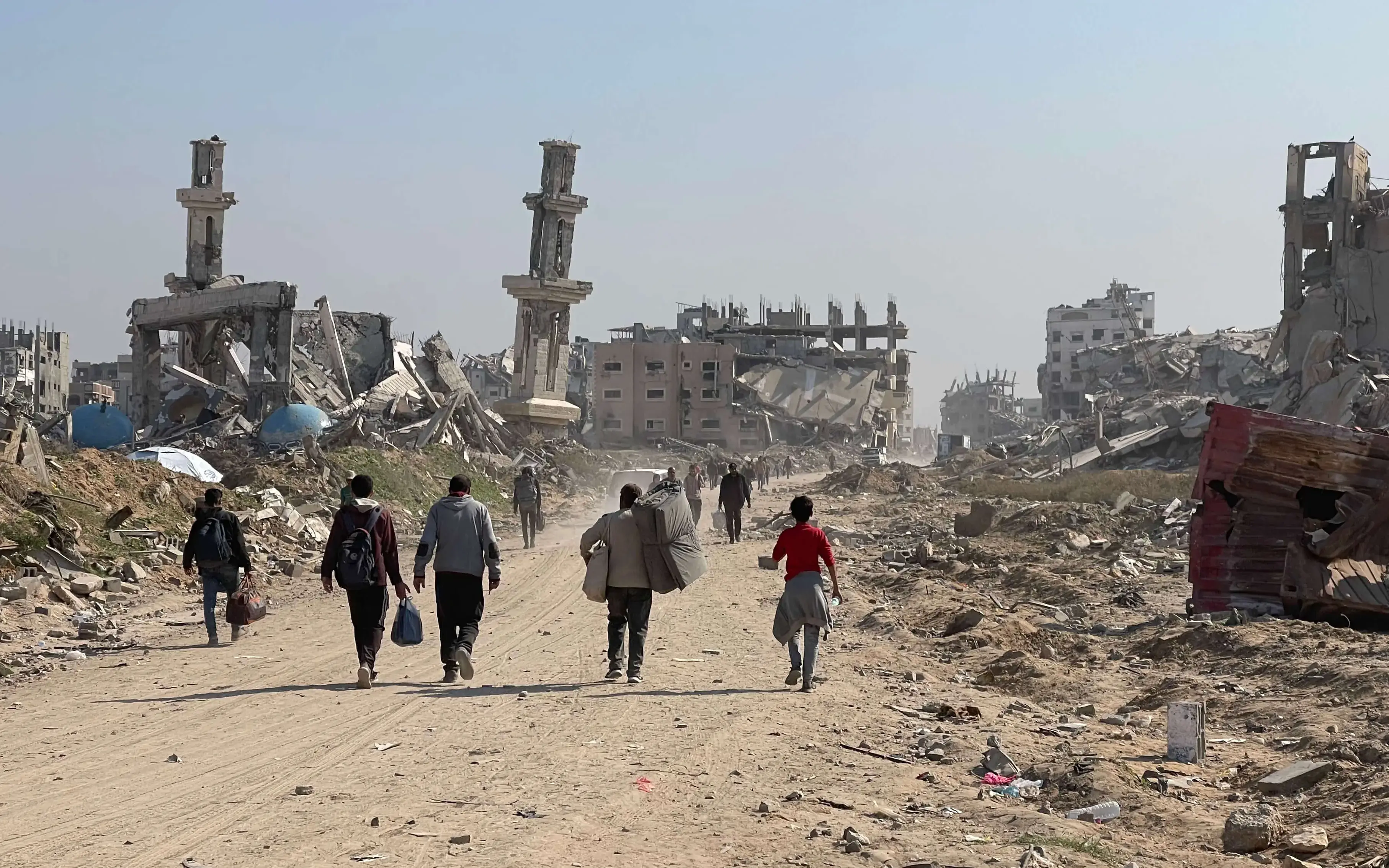Dani Vilaró: "It’s a mistake to think that the death penalty imparts justice and makes societies safer"
On the occasion of World Day Against the Death Penalty, which is celebrated on October 10, we talked to one of Amnesty International's spokespersons about this issue.
The report on the state of the death penalty around the world, prepared each year by Amnesty International (AI), indicates that in 2020 executions fell by 26% over the previous year and are down for the fifth year in a row. These are positive data from a report that, on the other hand, still casts a lot of shadows. We talked to Dani Vilaró, one of the organisation’s spokespersons against the death penalty.
Amnesty International (AI) has been campaigning against the death penalty since 1976. Why should the death penalty be abolished?
The death penalty is the violation of the right to life, which is the most important right there is. And not only that, it’s also torture for people who are waiting on death row. It’s also used to force confessions and is often imposed after unfair trials that take place without guarantees. In fact, the main countries where it’s in effect are those with justice systems that don’t meet international standards. In short, everything surrounding the death penalty is cruel and inhuman.
But the UN admits or tolerates the death penalty for serious crimes, such as blood crimes…
AI always bases itself on international law to do its job, but on this issue we disagree. It’s true that the UN tolerates the death penalty for serious crimes such as murder, not for others. We don’t want to make these distinctions, we oppose the death penalty under any circumstances, whatever the crime. We believe it’s such a harsh, cruel and inhuman punishment that no one deserves it.
With the death penalty no justice is done, it’s an act of revenge. Victims and their families have other avenues to achieve the justice and reparation to which they are undoubtedly entitled.
What happens in cases where the majority of society is in favour of the death penalty?
It’s true that, if we did surveys, in many countries we’d get a very high number of supporters of the death penalty. However, we believe that the taboos and myths surrounding capital punishment need to be dispelled. It’s a mistake to think that the death penalty imparts justice or makes societies safer. In fact, the countries where it’s applied are not paragons of security; on the contrary, in most of them there’s a very serious situation of violence.
The death penalty is part of a cycle of violence, it’s violence that generates more violence and more pain. What happens, for example, to the relatives of an executed person, why must they suffer for what a person has done? It makes no sense and is a thing of the past that needs to be left behind.
The AI report on the state of the death penalty in the world points out that in 2020 executions continued to fall, with 483, the lowest figure in a decade.
In this report we try to collect data on the executions that we know about, which doesn’t mean all that have taken place, surely there are many more of which we have no record. That said, indeed, there is a significant reduction in executions that marks a clear downward trend in recent years.
And every year more and more countries join its abolition.
Yes, there are already 108, more than half of the countries in the world. And if we add the countries that maintain the death penalty in their legislation, but don’t apply it, they increase to 144, a very important figure. It’s a very big change from 1976, when AI began to work with the death penalty. Back then there were only 16 abolitionist countries. So the trend is slow but clear: the world is moving towards a scenario of abolition of the death penalty.
What is the reason for the drop in executions?
The death penalty is mainly applied for such a trivial reason as that it always has been. It’s a historical issue, a tradition. And, of course, there comes a time when many countries consider whether they should maintain such an extreme punishment. It’s also applied due to a series of reasons such as that it’s a deterrent to crime, but there are no studies to support that, and many countries end up taking the step of eliminating it because they no longer have any arguments.
And the contagion effect is also important: there are many areas of the world that are now virtually free of the death penalty, such as Europe, where only Belarus remains. In the Americas, for example, it’s only applied by the United States.
The United States is, coincidentally, one of the bad news in the 2020 report.
That’s right, because, while executions dropped from 22 in 2019 to 17 in 2020, the last stretch of Donald Trump’s presidency was unfortunate because federal executions were resumed, after not being applied since 2003. Trump not only reinstated them but did so with ten executions in just six months. This broke the trend in which executions were limited to certain southern states such as Texas or Georgia. The new Biden administration is now expected to reverse the direction of this issue.
Is Egypt another one of the most worrying cases?
Yes, the number of death sentences and executions increased there. It’s a paradigmatic case of a country that uses the death penalty not to fight the most serious crimes but dissent and political opposition, with dubious accusations of terrorism or conspiracies against the government. Iran and Saudi Arabia do the same thing.
In fact, if we leave out China, Iran, Saudi Arabia, Iraq and Egypt account for 88% of executions.
These are four countries that have a very complex situation, with authoritarian governments using the death penalty to keep under control the internal problems that arise. And beyond the death penalty, the human rights situation in these countries is also very worrying and is getting worse. All this goes hand in hand with the increase in applying the death penalty.
One of the most controversial cases is that of China, about which AI does not give figures.
It’s clear that China is the main executioner in the world. We haven’t published data for four years because it’s impossible to know for sure, but surely thousands of people are executed every year. China considers everything related to the death penalty a state secret and controls the information on this punishment very well. They make it public when they want to set an example, but many executions are not public. We call for more transparency from the Chinese authorities, to know why it’s being applied and for what crimes.
2020 was the year of Covid-19, did it in any way affect the application of the death penalty in the world?
Yes, especially during the hardest part of the pandemic. Access was not allowed in prisons or detention centres where people were on death row or were in court proceedings that could end in the death penalty. The pandemic had an impact on issues such as access to lawyers and legal aid, and this has an influence on whether the person has a fair trial or not. And it didn't just happen in countries where we already know that this doesn't quite work, like Iran or Saudi Arabia, but also in the United States, for example.
Will we see the end of the death penalty?
The trend towards abolition has been very good in recent years, but it’s also true that there are a number of countries that always lead the rankings of executions, countries that we could call irreducible, that fall outside this trend.
Every year, countries join the abolition movement, but they are small countries. We need to work with the big ones, such as China or the United States, which are also two countries that have a permanent seat on the UN Security Council, have a lot of influence in the world and could drag more countries into abolition. There’s a way forward there. But achieving total abolition will be difficult because there are areas of the world, such as the Middle East, where we are far from ending the death penalty.









Add new comment